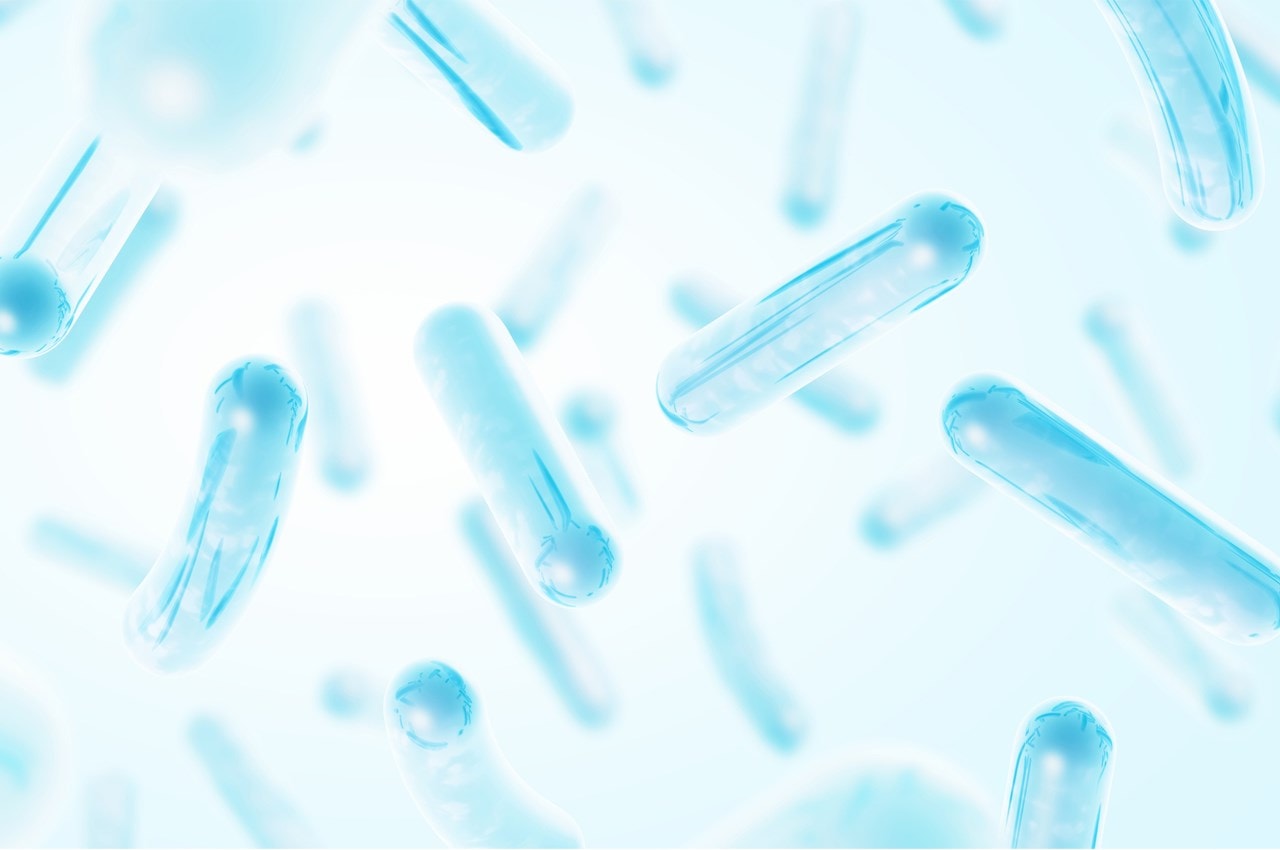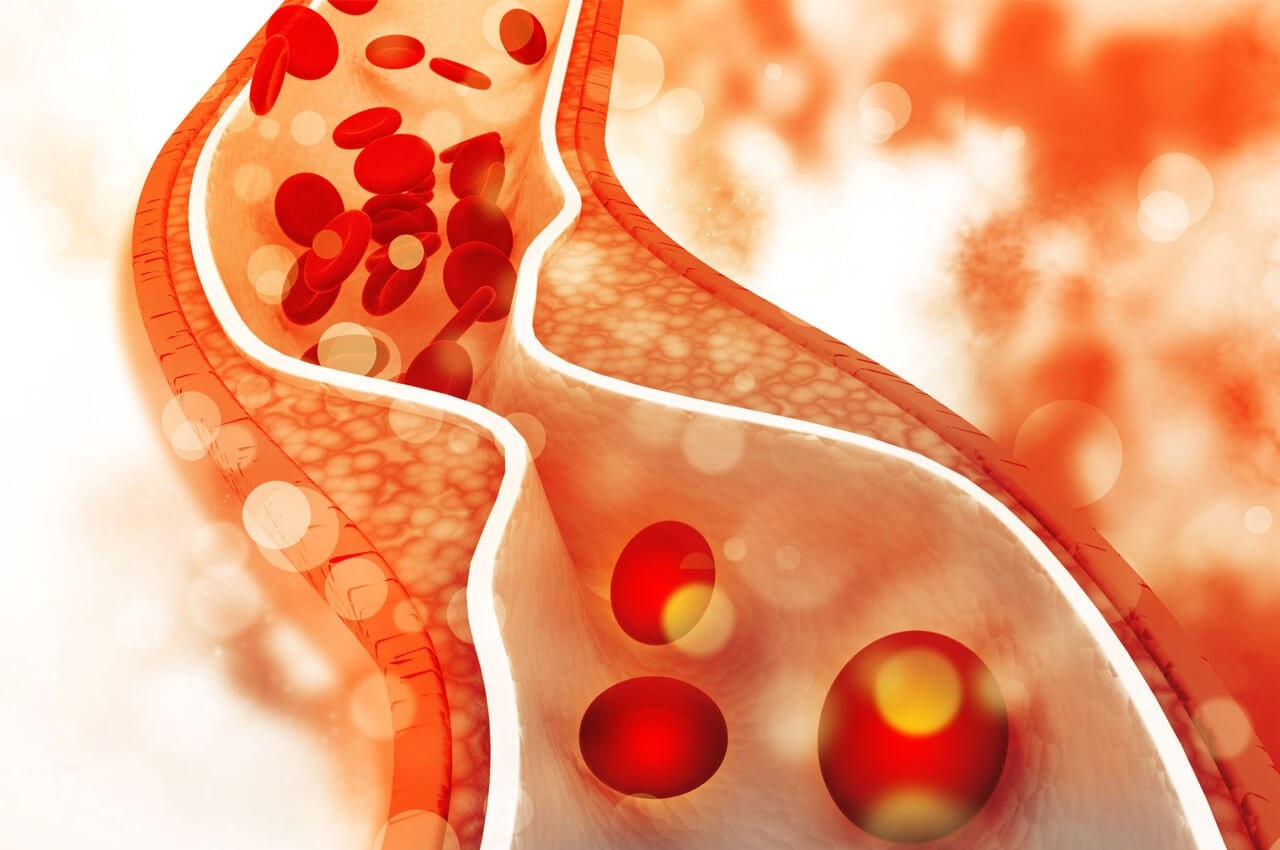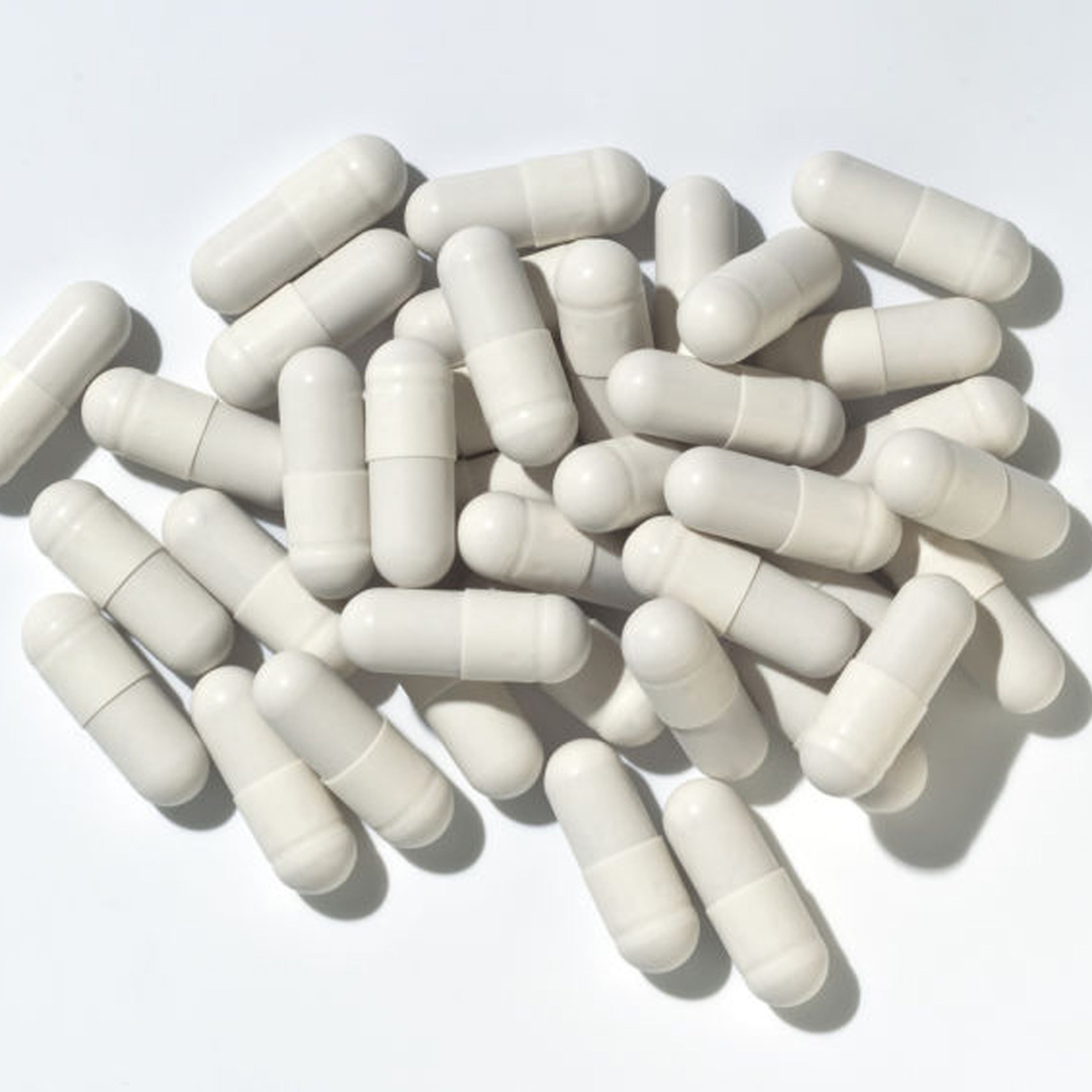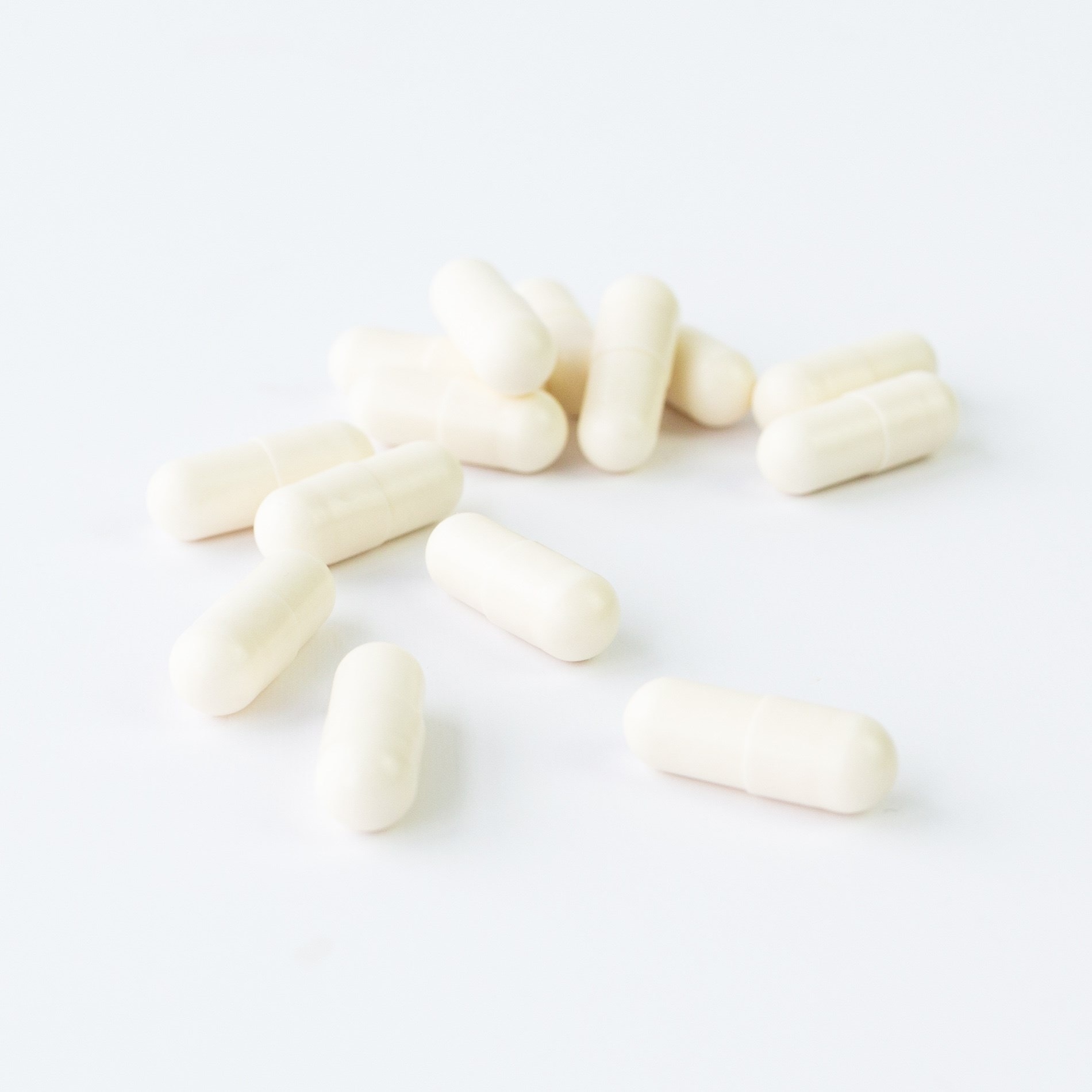The Uses of Prebiotics
Prebiotics are defined as “a substrate that is selectively utilised by host microorganisms conferring a health benefit”. Essentially, prebiotics are the food source that selectively nourishes the beneficial bacteria that reside in our gut, enabling them to grow and multiply. For more information about the different types of prebiotics (inulin, GOS and FOS), read this article in the Probiotics Learning Lab: What are prebiotics?
Within this article:
- Is it necessary to include prebiotics in our diet?
- Prebiotics in Gut Health
- Immune function
- Mineral absorption
- Metabolic Health
- Cholesterol metabolism
- Fatty acid metabolism
- Glucose metabolism
- Mental Health
- Autistic Spectrum Disorder
- Sleep
- Skin Health
- Benefits of taking a prebiotic supplement
- In Summary

Is it necessary to include prebiotics in our diet?
Ideally, yes. Prebiotics are fermented by gut bacteria to produce short-chain fatty acids (SCFAs), hydrogen and carbon dioxide. Acetate, propionate and butyrate make up 95% of SCFAs in the colon1 and have important beneficial effects around the body. SCFAs are small enough to pass from the gut lumen through colonocytes (epithelial cells lining the gut) into the blood stream and are distributed to various organs including the liver and the heart. Interestingly, SCFAs are a rich source of energy for the human body and provide approximately 10% of the human calorie requirements per day2.
Prebiotics are naturally found in some foods such as legumes, onions, garlic and Jerusalem artichoke3. They can also be found in supplement format in higher concentrations. They have usually been extracted and purified from a natural sources or can be synthesised from natural sugars enzymatically.
Prebiotics in Gut Health
Prebiotics affect gut health by altering the composition of the gut microbiome and by increasing the production of short chain fatty acids. They stimulate the growth of beneficial microbes in the gut, shifting the overall microbiome to a more positive composition. An increase in the number of friendly bacteria, further promotes the production of SCFAs which in turn reduce colonic luminal pH. A healthy microbiome is also associated with improved mucosal barrier integrity as the presence of friendly bacteria in the gut exert a ‘barrier effect’, protecting the gut lining from damage and increased permeability. Learn more by reading: What are probiotics? on the Probiotics Learning Lab. SCFAs like butyrate can provide energy to our colonocytes, thereby positively contributing to gut cell health and promoting a healthy cell turnover and stimulating bowel regularity4.
Outside of gut health, prebiotics and their by-products, SCFAs also affect:
- Immune system support and regulation5
- Mineral absorption6
- Cholesterol metabolism7
- Fatty acid metabolism8
- Glucose metabolism1,9
- Mental Health10,11
- Autistic Spectrum Disorder12,13
- Sleep14
- Skin health
We’ll take a look at each of these individual sections below to see how the production of SCFA’s and a healthier microbial composition can impact our general health.
Immune function
Prebiotics have been shown to influence immune function by altering the gut microbiome composition, thus affecting immune signalling and cytokine expression15. This is particularly important in early life when the immune system is immature and is developing in response to the child’s internal and external environment.
Infants receive their first dose of prebiotics from breast or formula milk. Breast milk contains unique prebiotics known as human milk oligosaccharides (HMO’s). HMO’s are some of the most selective prebiotics, utilised predominantly by specific Bifidiobacterium spp. HMO’s have evolved purely to nourish and support the developing ‘baby biome’. Learn more about the importance of the baby biome on the Probiotics Learning Lab site. In formula feeds, a mixture of short chain GOS (galacto-oligosaccharides) and long chain FOS (fructo-oligosaccharides) is usually added to mimic the effects of HMO’s. GOS/FOS mix can elicit bifidogenic effects, but they are not as selective as HMO’s.

Bifidobacteria are known immunomodulators and play an important role in the development and maturation of the immune system. Bifidobacteria have been shown to reduce pro-inflammatory cytokines such as IL-6, IL-1 beta and TNF alpha, as well as enhance phagocytosis, natural killer cell activity and anti-inflammatory cytokines IL-10 and IL-83. Additionally, GOS and HMO’s have been shown to reduce pathogen adherence by acting as ‘receptor decoys’. The pathogen binds to the prebiotic as opposed to colonocytes, for example GOS has been shown to reduce enteropathogenic Escherichia coli 16. Clinical evidence also suggests that FOS can upregulate antibody response to vaccines17. To find out more about the research behind prebiotics and its effects on immunity in children, read: Prebiotics may help reduce infections in children.
Mineral absorption
Prebiotics such as GOS can influence mineral absorption, particularly calcium6. Although the exact mechanisms have not been fully elucidated, calcium absorption is thought to be affected by prebiotics by the following processes:
- SCFAs reduce the pH of intestinal luminal contents. An acidic environment is thought to prevent calcium from binding to other metabolites which increases its availability for absorption and bone mineralisation18.
- Prebiotics can increase the intestinal mucosal surface area by increasing mucosal cell density19 which may enable greater mineral absorption.
- Prebiotics have been shown to increase calcium transport proteins in animal studies20
In a randomised controlled trial (RCT), researchers found that using 5g of GOS per day for 3 weeks in 31 adolescent girls between the ages of 10 and 13 years significantly increased calcium absorption compared with the control group (p<0.02). This was associated with an increase in faecal Bifidobacteria6. Although long term clinical studies are required, it shows promise for the use of prebiotics in mineral absorption. As such, prebiotics have been suggested to enhance bone mineralisation, maintain bone density and reduce the risk of osteoporosis21 due to their ability to aid calcium absorption.
Metabolic Health
Metabolic syndrome is a group of conditions, often occurring together that increase the risk of developing Type 2 Diabetes Mellitus, cardiovascular disease, and stroke. These conditions include obesity, high blood glucose levels, hypertension and dyslipidaemia22. Individuals with metabolic syndrome are often found to have dysbiosis (an imbalanced microbiome)23. Dysbiosis can lead to impaired gut wall integrity causing increased intestinal permeability (known as leaky gut), contributing to the inflammatory phenotype found in metabolic syndrome24.
Prebiotics may play a role in the management of metabolic syndrome. In an RCT involving 45 overweight adults and at least 3 features of metabolic syndrome, GOS administered daily for 12 weeks was found to significantly reduce CRP levels (marker of inflammation) (p<0.0012), insulin levels (p<0.005) and total cholesterol levels (p<0.001) compared with placebo25. FOS has also been found to have a positive effect on body weight. In an RCT involving 39 overweight adults with a BMI greater than 25, those who were given 21g of FOS daily for 12 weeks had a significant reduction in body weight when compared with placebo (p=0.05). The FOS group also demonstrated significant reductions in blood glucose levels (p=0.001), insulin levels (0.05) and an increase in peptide YY (p=0.03) which promotes satiety. It’s no wonder that some diet and low carb products are using prebiotics to reduce sugar and/or fat content.
One sachet of Optibac Probiotics Bifido & Fibre provides 4g of FOS.
Let’s go into a little more detail about how prebiotics and SCFAs, are helpful for different aspects of metabolic health.
Cholesterol metabolism

SCFAs have been shown to reduce the plasma concentration of cholesterol in animal studies26. Although the mechanism is not fully clear as of yet, it is thought to occur by reducing the enzymes required to produce cholesterol in the body e.g. HMG-CoA synthase and HMG-CoA reductase.
Fatty acid metabolism
SCFAs are thought to affect fatty acid metabolism by activating the breakdown of fat to produce energy, known as fatty acid oxidation. However, further human interventional studies are required to validate this theory27. SCFAs can increase leptin production8, a hormone produced by adipose cells, important in regulating energy expenditure. Increased leptin induces weight loss by inhibiting appetite28. Leptin has been found to be supressed in individuals with high BMI and increased body fat percentages29. Overall, SCFAs have been theoretically proposed to be able to reduce the risk of diet induced obesity through increasing fatty acid oxidation and reducing fat storage in adipose tissue1. To learn more, read these articles: Study shows prebiotics may modulate metabolism and Could prebiotics help to tackle obesity?
Glucose metabolism
Peptide YY and glucagon-like peptide 1 (GLP-1) are gastrointestinal hormones produced following eating. They promote satiety and reduce appetite leading to a reduction in food intake30. SCFAs can normalise blood glucose levels as they increase gut hormones peptide YY and glucagon-like peptide 11. In individuals with type 2 Diabetes Mellitus, FOS was shown to reduce fasting plasma glucose levels and enhance insulin sensitivity9. SCFAs, such as butyrate, enhance the gut mucosal barrier function, reducing intestinal permeability which in turn, can reduce systemic inflammation implicated in obesity and type 2 Diabetes Mellitus9.
Mental Health
Prebiotics have been identified to have psychobiotic potential, which means they can have positive effects on the relationship between the gut microbiome and the brain, known as the gut-brain axis31. Human clinical trials have been performed and have had promising results although the mechanism by which prebiotics exert their effects on mental health are not well understood and further clinical studies are required10,11. To read more about the research behind the effects of prebiotics on mental health, take a look at this article: Could prebiotics help with anxiety?
Autistic Spectrum Disorder
Gastrointestinal issues are common in those with autistic spectrum disorder (ASD) with increased rates of diarrhoea, constipation and abdominal pain reported13. Dysbiosis is also frequently present in ASD with typically increased levels of pathogenic bacteria like Clostridia and Desulfovibrio and reduced levels of beneficial bacteria such as Bifidobacteria32.
The gut microbiome is theorised to influence gastrointestinal function and behaviour in those with ASD through its effects on immune function. Dysbiosis can increase gut permeability and allow the passage of substances such as food particles and bacterial metabolites through the gut wall, stimulating a pro-inflammatory immune response. Inflammation and altered immune responses are thought to be some of several contributory factors in the pathogenesis of ASD32.
Prebiotics have been identified for their potential to impact gastrointestinal symptoms and behaviour in ASD. Although there are few randomised controlled trials performed in this area, results from small pilot studies thus far have been promising. Of note, significant improvements have been identified in appetite, stool consistency, frequency and pain associated with defecation, along with improvements in irritability, stereotypy and hyperactivity in a small RCT of 8 children with ASD administered prebiotic glycans in bovine colostrum33. Further clinical studies remain to be performed in this area.
Sleep
Emerging evidence on the effects of prebiotics on sleep has garnered media attention in recent years. Although in its early stages, the clinical research is very interesting suggesting that prebiotics have a positive effect on sleep quality through their effects on the gut microbiome composition14. To learn more about this research, read this article on the Probiotics Learning Lab site: How gut bacteria may affect our sleep.
Skin Health
The health benefits of prebiotics are also visible to the naked eye – on our skin! As discussed above, prebiotics can help to regulate our bowel movements4, encourage the growth of beneficial gut microbes, maintain gut barrier integrity and modulate inflammatory responses3, each of which can impact our skin health. In fact, individuals with acne, psoriasis and eczema all exhibit gut dysbiosis and inflammation36.
SCFAs can pass through the gut epithelial lining and exert systemic effects34. SCFAs such as butyrate have been shown to suppress inflammation in the skin by stimulating a particular type of immune cell, T reg cells, this in turn can impact our skin microbiome35. To learn more about the effects of the gut microbiome on skin health, read the article Probiotics for acne and skin health on the Probiotics Learning Lab.
Benefits of taking a prebiotic supplement

Prebiotics are heat and gastric acid resistant
- No need to worry about prebiotics reaching the gut alive as they are the food for our beneficial bacteria and are not damaged by heat or changes in pH.
Naturally sweet taste
- The pleasant flavour of prebiotics makes them an easy addition to our diet.
Easy storage
- Prebiotics have a long shelf life and do not need to be refrigerated
Many individuals choose to take a synbiotic supplement to get the best of both worlds so to speak, a combination of prebiotics and probiotics in one supplement for all-round support. To find out more, you may like to read the article What are synbiotics? on the Probiotics Learning Lab.
In Summary
- Prebiotics are a source of food for the beneficial bacteria residing in the gut. Short chain fatty acids are produced by bacterial fermentation of prebiotics in the GI tract.
- Prebiotics are present naturally in certain foods such as legumes, onions and garlic. However, they may be taken as a dietary supplement as they are present only in small amounts in foods.
- SCFAs have a variety of beneficial effects on health including supporting bowel regularity, optimising general gut health, immune regulation, increasing mineral absorption and normalising cholesterol, fatty acid and glucose metabolism and mental wellbeing.
For more information about prebiotics, take a look at these related articles in the Probiotics Learning Lab:
Probiotics and Prebiotics
Is it better to take prebiotics alone?
References
- Den Besten G, Van Eunen K, Groen AK, Venema K, Reijngoud DJ, Bakker BM. The role of short-chain fatty acids in the interplay between diet, gut microbiota, and host energy metabolism. J Lipid Res. 2013;54(9):2325-2340. doi:10.1194/jlr.R036012
- Bergman EN. Energy contributions of volatile fatty acids from the gastrointestinal tract in various species. Physiol Rev. 1990;70(2):567-590. doi:10.1152/physrev.1990.70.2.567
- Davani-Davari D, Negahdaripour M, Karimzadeh I, et al. Prebiotics: Definition, types, sources, mechanisms, and clinical applications. Foods. 2019;8(3):1-27. doi:10.3390/foods8030092
- Naseer M, Poola S, Uraz S, Tahan V. Therapeutic Effects of Prebiotics in Constipation: A Review. Curr Clin Pharmacol. 2020;15. doi:10.2174/1574884715666200212125035
- Forchielli ML, Walker WA. The role of gut-associated lymphoid tissues and mucosal defence. Br J Nutr. 2005;93(S1):S41-S48. doi:10.1079/bjn20041356
- Whisner CM, Martin BR, Schoterman MHC, et al. Galacto-oligosaccharides increase calcium absorption and gut bifidobacteria in young girls: A double-blind cross-over trial. Br J Nutr. 2013;110(7):1292-1303. doi:10.1017/S000711451300055X
- Ooi LG, Liong MT. Cholesterol-lowering effects of probiotics and prebiotics: A review of in Vivo and in Vitro Findings. Int J Mol Sci. 2010;11(6):2499-2522. doi:10.3390/ijms11062499
- Xiong Y, Miyamoto N, Shibata K, et al. Short-chain fatty acids stimulate leptin production in adipocytes through the G protein-coupled receptor GPR41. Proc Natl Acad Sci U S A. 2004;101(4):1045-1050. doi:10.1073/pnas.2637002100
- Kim YA, Keogh JB, Clifton PM. Probiotics, prebiotics, synbiotics and insulin sensitivity. Nutr Res Rev. 2018;31(1):35-51. doi:10.1017/S095442241700018X
- Schmidt K, Cowen PJ, Harmer CJ, Tzortzis G, Errington S, Burnet PWJ. Prebiotic intake reduces the waking cortisol response and alters emotional bias in healthy volunteers. Psychopharmacology (Berl). 2015;232(10):1793-1801. doi:10.1007/s00213-014-3810-0
- Azpiroz F, Dubray C, Bernalier-Donadille A, et al. Effects of scFOS on the composition of fecal microbiota and anxiety in patients with irritable bowel syndrome: a randomized, double blind, placebo controlled study. Neurogastroenterol Motil. 2017;29(2):1-8. doi:10.1111/nmo.12911
- Grimaldi R, Gibson GR, Vulevic J, et al. A prebiotic intervention study in children with autism spectrum disorders (ASDs). Microbiome. 2018;6(1):1-13. doi:10.1186/s40168-018-0523-3
- McElhanon BO, McCracken C, Karpen S, Sharp WG. Gastrointestinal symptoms in autism spectrum disorder: A meta-analysis. Pediatrics. 2014;133(5):872-883. doi:10.1542/peds.2013-3995
- Thompson RS, Roller R, Mika A, et al. Dietary prebiotics and bioactive milk fractions improve NREM sleep, enhance REM sleep rebound and attenuate the stress-induced decrease in diurnal temperature and gut microbial alpha diversity. Front Behav Neurosci. 2017;10. doi:10.3389/fnbeh.2016.00240
- Shokryazdan P, Faseleh Jahromi M, Navidshad B, Liang JB. Effects of prebiotics on immune system and cytokine expression. Med Microbiol Immunol. 2017;206(1). doi:10.1007/s00430-016-0481-y
- Shoaf K, Mulvey GL, Armstrong GD, Hutkins RW. Prebiotic galactooligosaccharides reduce adherence of enteropathogenic Escherichia coli to tissue culture cells. Infect Immun. 2006;74(12):6920-6928. doi:10.1128/IAI.01030-06
- Langkamp-Henken B, Bender BS, Gardner EM, et al. Nutritional Formula Enhanced Immune Function and Reduced Days of Symptoms of Upper Respiratory Tract Infection in Seniors. J Am Geriatr Soc. 2004;52(1):3-12. doi:10.1111/j.1532-5415.2004.52003.x
- Whisner CM, Castillo LF. Prebiotics, Bone and Mineral Metabolism. Calcif Tissue Int. 2018;102(4):443-479. doi:10.1007/s00223-017-0339-3
- Scheppach W. Effects of short chain fatty acids on gut morphology and function. Gut. 1994;35(1 SUPPL.):35-38. doi:10.1136/gut.35.1_Suppl.S35
- Ohta A, Motohashi Y, Sakai K, Hirayama M, Adachi T, Sakuma K. Dietary fructooligosaccharides increase calcium absorption and levels of mucosal calbindin-D9k in the large intestine of gastrectomized rats. Scand J Gastroenterol. 1998;33(10):1062-1068. doi:10.1080/003655298750026769
- McCabe L, Britton R, Parameswaran N. Prebiotic and Probiotic Regulation of Bone Health: Role of the Intestine and its Microbiome Laura. Physiol Behav. 2016;13(6):363-371. doi:10.1016/j.physbeh.2017.03.040
- Samson SL, Garber AJ. Metabolic syndrome. Endocrinol Metab Clin North Am. 2014;43(1):1-23. doi:10.1016/j.ecl.2013.09.009
- Li X, Watanabe K, Kimura I. Gut microbiota dysbiosis drives and implies novel therapeutic strategies for diabetes mellitus and related metabolic diseases. Front Immunol. 2017;8(DEC):1-7. doi:10.3389/fimmu.2017.01882
- Chakaroun RM, Massier L, Kovacs P. Gut microbiome, intestinal permeability, and tissue bacteria in metabolic disease: Perpetrators or bystanders? Nutrients. 2020;12(4). doi:10.3390/nu12041082
- Vulevic J, Juric A, Tzortzis G, Gibson GR. A mixture of trans-galactooligosaccharides reduces markers of metabolic syndrome and modulates the fecal microbiota and immune function of overweight adults1-3. J Nutr. 2013;143(3):324-331. doi:10.3945/jn.112.166132
- Trautwein EA, Rieckhoff D, Erbersdobler HF. Dietary inulin lowers plasma cholesterol and triacylglycerol and alters biliary bile acid profile in hamsters. J Nutr. 1998;128(11):1937-1943. doi:10.1093/jn/128.11.1937
- Sukkar AH, Lett AM, Frost G, Chambers ES. Regulation of energy expenditure and substrate oxidation by short-chain fatty acids. J Endocrinol. 2019;242(2):R1-R8. doi:10.1530/JOE-19-0098
- Klok MD, Jakobsdottir S, Drent ML. The role of leptin and ghrelin in the regulation of food intake and body weight in humans: A review. Obes Rev. 2007;8(1):21-34. doi:10.1111/j.1467-789X.2006.00270.x
- Schwartz MW, Peskind E, Raskind M, Boyko EJ, Porte D. Cerebrospinal fluid leptin levels: Relationship to plasma levels and to adiposity in humans. Nat Med. 1996;2(5):589-593. doi:10.1038/nm0596-589
- Morínigo R, Moizé V, Musri M, et al. Glucagon-Like Peptide-1, Peptide YY, Hunger, and Satiety after Gastric Bypass Surgery in Morbidly Obese Subjects. J Clin Endocrinol Metab. 2006;91(5):1735-1740. doi:10.1210/jc.2005-0904
- Taylor AM, Holscher HD. A review of dietary and microbial connections to depression, anxiety, and stress. Nutr Neurosci. 2020;23(3):237-250. doi:10.1080/1028415X.2018.1493808
- Fattorusso A, Di Genova L, Dell’isola GB, Mencaroni E, Esposito S. Autism spectrum disorders and the gut microbiota. Nutrients. 2019;11(3). doi:10.3390/nu11030521
- Sanctuary MR, Kain JN, Angkustsiri K, German JB. Dietary Considerations in Autism Spectrum Disorders: The Potential Role of Protein Digestion and Microbial Putrefaction in the Gut-Brain Axis. Front Nutr. 2018;5:40. doi:10.3389/fnut.2018.00040
- Boets E, Gomand S V., Deroover L, et al. Systemic availability and metabolism of colonic-derived short-chain fatty acids in healthy subjects: a stable isotope study. J Physiol. 2017;595(2):541-555. doi:10.1113/JP272613
- Schwarz A, Bruhs A, Schwarz T. The Short-Chain Fatty Acid Sodium Butyrate Functions as a Regulator of the Skin Immune System. J Invest Dermatol. 2017;137(4):855-864. doi:10.1016/j.jid.2016.11.014
- Salem I et al. The gut microbiome as a major regulator of the gut skin axis. Front Microbiol. 2018; 9: 1459


